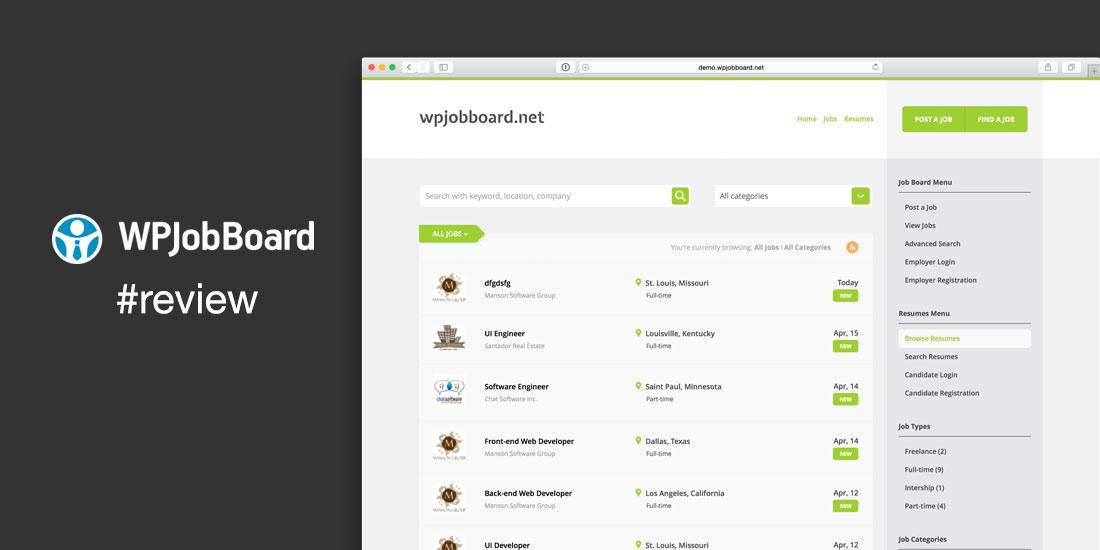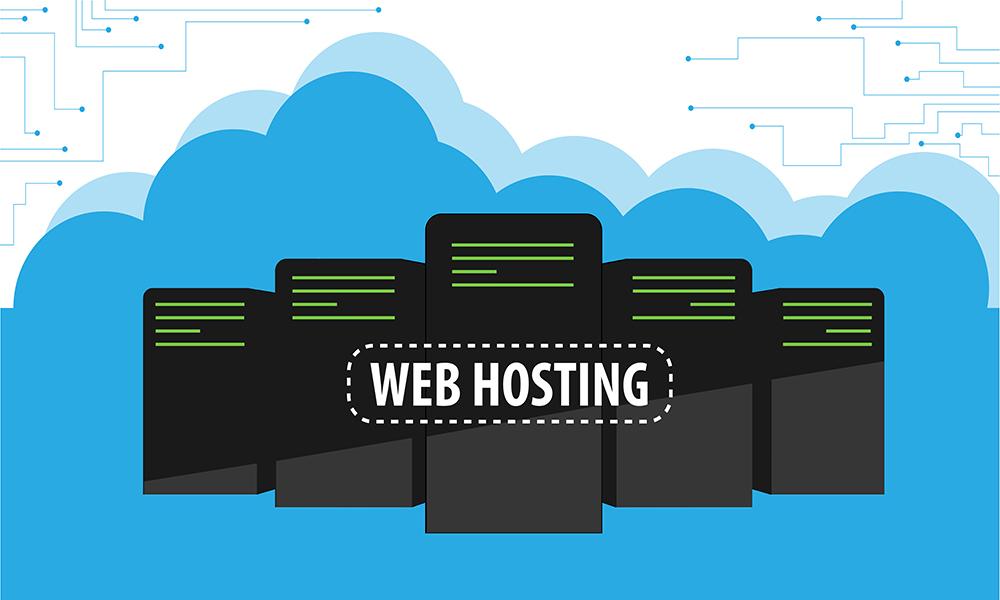Are you itching to start a new website but feeling overwhelmed by the sheer popularity of WordPress? You’re not alone! While wordpress has long been the go-to platform for bloggers and businesses alike, the digital landscape is evolving, and so are your options. Weather you’re seeking something simpler, more customizable, or even a platform that aligns better with your specific needs, there’s a world of WordPress alternatives just waiting to be explored.
In this article, we’re diving deep into the “17 Best WordPress Alternatives and Competitors for 2025.” From user-friendly builders to powerful e-commerce platforms, we’ll highlight the pros and cons of each option, helping you find the perfect fit for your unique vision. So, if you’re ready to step outside the WordPress box and discover new possibilities for your online presence, let’s get started! Your ideal website awaits.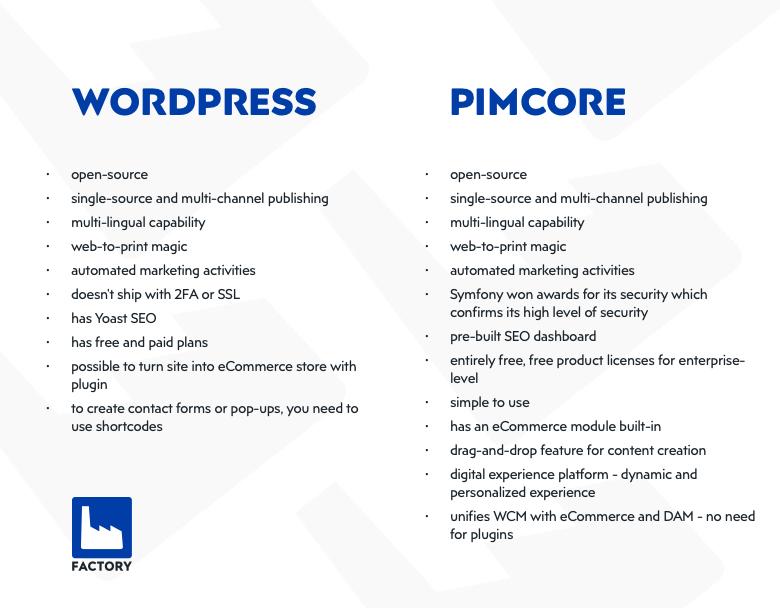
Choosing the Right Platform for Your Needs
When it comes to building your online presence,selecting the right platform can make all the difference. With an abundance of options available, it’s essential to evaluate each one based on your specific needs, goals, and technical abilities. While WordPress is a popular choice, numerous alternatives can offer unique advantages that might align better with your vision.
Start by considering the purpose of your website. Are you looking to create a simple blog, an e-commerce site, or perhaps a portfolio to showcase your work? Different platforms excel in different areas:
- Content Management: Platforms like Ghost and Joomla offer robust content management features, perfect for bloggers and businesses that prioritize content.
- E-commerce: If your focus is on selling products online, consider options like Shopify or BigCommerce, which provide user-friendly tools for managing an online store.
- Portfolio: For creatives, platforms like Wix or Squarespace provide stunning templates that highlight visual content effectively.
Next,reflect on your technical expertise. Some platforms require a higher level of coding skills, while others are designed for users with little to no technical background. As an example, if you have experience with web development, platforms like Webflow or Drupal might appeal to you due to their adaptability and customization options.However, if you prefer a more straightforward, drag-and-drop interface, options like Weebly or SiteGround can help you get started without a steep learning curve.
additionally, consider your budget. While many platforms offer free plans, they frequently enough come with limitations. Paid plans can vary widely in cost and features, so assessing your financial capacity will help narrow down your choices. Here’s a speedy comparison of some popular platforms:
| Platform | Starting Price | Best For |
|---|---|---|
| WordPress.com | Free / $4 | Blogs, personal websites |
| Shopify | $29 | E-commerce |
| squarespace | $16 | Portfolios, small businesses |
| Wix | Free / $14 | General websites |
Lastly, don’t forget to explore the community support and resources available for the platform you choose. A thriving community can be invaluable, offering tutorials, forums, and troubleshooting assistance that can help you navigate challenges and enhance your site. Platforms with extensive documentation and active user communities are especially beneficial for beginners.

Exploring User-Friendly WordPress alternatives
For those seeking to break free from the constraints of WordPress, various user-friendly alternatives are available that cater to diverse needs and preferences. Each option brings its unique features,allowing users to find a platform that aligns with their vision for a website. Here are a few standout choices:
- Wix: Perfect for beginners, Wix offers a simple drag-and-drop interface, making it easy to design stunning websites without any coding knowledge. Its extensive template library and integrated tools streamline the website creation process.
- Squarespace: Known for its aesthetic appeal, Squarespace provides beautifully designed templates that are ideal for creatives. Features like built-in e-commerce capabilities and SEO tools help elevate online presence effortlessly.
- Weebly: user-friendly with a straightforward interface, Weebly is excellent for small businesses and personal projects. Its e-commerce functionality is robust, making it simple to manage online stores.
For those with a bit more technical savvy, platforms like Joomla and Drupal are worthy of consideration. these CMS options offer greater flexibility and customization capabilities,allowing for more sophisticated website designs. Though, they may come with a steeper learning curve than their more simplified counterparts.
| Platform | Best For | Key Features |
|---|---|---|
| Wix | beginners | Drag-and-drop, templates |
| Squarespace | Creatives | Design templates, SEO |
| Weebly | Small businesses | E-commerce, simple interface |
| Joomla | Advanced users | Customizability, flexibility |
| Drupal | Developers | High scalability, complex sites |
Ultimately, the right platform will depend on your specific needs, whether that’s a visually striking portfolio, a straightforward blog, or a robust online store. It’s essential to evaluate these alternatives based on usability, design capabilities, and the level of support each platform offers. By considering these factors, you’ll be one step closer to finding the perfect WordPress option for your project.
Top Open-Source Competitors Worth Considering
If you’re exploring alternatives to WordPress for your website, there are several open-source platforms that stand out for their power and flexibility. Here are some top contenders that are definitely worth considering:
- Joomla: This flexible platform is known for its powerful content management capabilities.With a robust framework and a wide range of extensions, Joomla is perfect for users who need more than just a basic blog.Its user-friendly interface allows for easy content organization, making it a great choice for more complex websites.
- Drupal: Renowned for its security and scalability, Drupal is the go-to option for large-scale websites and applications. it offers a high degree of customization, allowing developers to create tailored solutions. If you’re looking for a platform that can grow with you, Drupal is a strong choice.
- Ghost: If your primary focus is on blogging, Ghost provides a minimalist interface and lightning-fast performance. built with modern web technologies, it’s designed for ease of use and provides a seamless writing experience. Plus, its built-in SEO features can help improve your site’s visibility.
- Grav: This file-based CMS is designed for speed and simplicity. With no database required, Grav is extremely lightweight and delivers high performance. It’s ideal for developers who appreciate flexibility and want to create custom themes and plugins effortlessly.
- October CMS: Built on the Laravel framework, October CMS is perfect for those looking for a modern approach to CMS design. It’s highly customizable and developer-friendly, making it a fantastic option for creating unique websites with ease.
When evaluating these platforms, it’s essential to consider your specific needs. Here’s a quick comparison table to help you determine which option might be the best fit for you:
| Platform | Best For | Key Features |
|---|---|---|
| Joomla | Complex websites | Flexible extensions, user-friendly |
| Drupal | Large-scale applications | Security, scalability, customization |
| Ghost | Blogging | Fast performance, SEO-friendly |
| grav | Speed & simplicity | File-based, no database needed |
| October CMS | Modern web design | Customizable, Laravel framework |
Each of these open-source platforms brings something unique to the table. by understanding your website goals, you can easily decide which alternative to WordPress aligns best with your vision.
Cloud-Based Solutions for Effortless Website Management
In an era where efficiency is pivotal, cloud-based solutions have emerged as the game-changers for website management. These platforms not only simplify the development process but also offer robust features that empower users to take control of their online presence without the steep learning curve traditionally associated with website development.
Imagine having the power to manage your website from anywhere, at any time, with just a few clicks. Cloud-based solutions provide scalability, security, and collaboration capabilities that are tough to match with conventional hosting options. Whether you’re a small business owner or a burgeoning blogger, these platforms allow you to focus more on content and less on the technical intricacies. Here are some important advantages:
- Accessibility: Work from any device with an internet connection.
- Automatic Updates: Stay current with the latest features and security patches without lifting a finger.
- Cost-Effectiveness: Pay for what you need,with flexible pricing models that grow with your business.
- Backup and Recovery: Regular backups ensure your data is secure and easily retrievable in case of an error.
Moreover, many cloud-based website management tools integrate seamlessly with third-party applications, enhancing functionality beyond basic site building. Tools for analytics, SEO, and social media management can be effortlessly incorporated, creating a hub that streamlines all your digital marketing efforts.A well-rounded platform can transform the way you engage with your audience and manage your online assets.
To add to the appeal, many of these solutions come equipped with user-friendly interfaces and drag-and-drop features, making it simple for anyone, regardless of technical expertise, to create stunning websites.Here’s a quick comparison of some popular cloud-based platforms:
| Platform | Key Feature | ideal For |
|---|---|---|
| Wix | Drag-and-drop editor | Small businesses and creatives |
| Squarespace | Elegant templates | Portfolios and eCommerce |
| Weebly | Integrated eCommerce tools | Small retailers |
| Shopify | Powerful eCommerce features | Online stores |
By leveraging the capabilities of cloud-based solutions, you can elevate your website management experience to new heights. It’s time to embrace these innovations and ensure your website is not just a digital placeholder but a thriving, dynamic platform that drives your business forward.
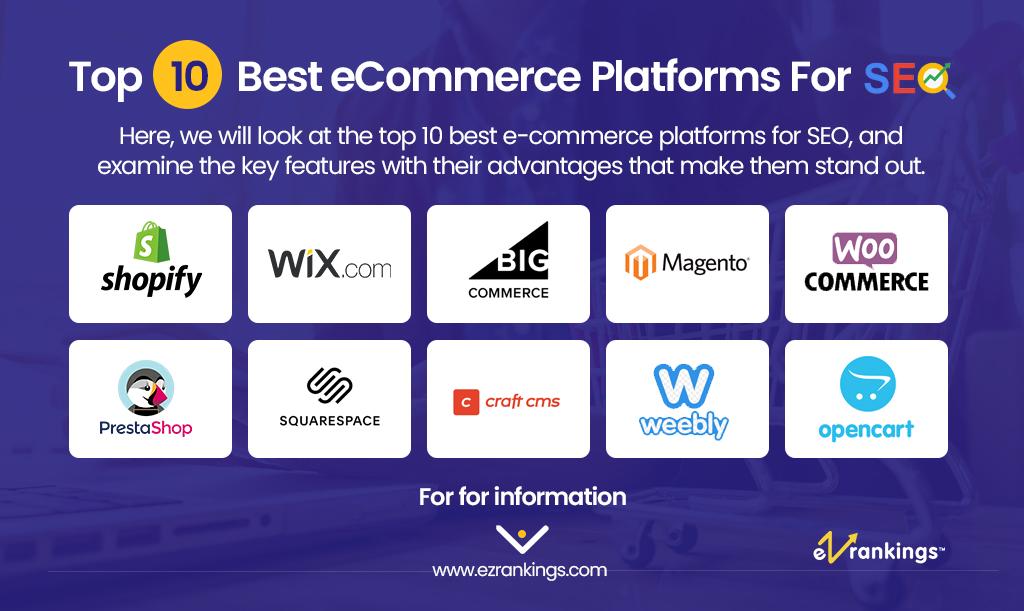
E-Commerce Focused Platforms to Boost Your Online Store
In a world where online shopping reigns supreme, having a robust e-commerce platform is essential for success.While WordPress is a popular choice, there are several worthy alternatives that cater specifically to e-commerce needs. These platforms not only provide user-friendly interfaces but also come packed with features designed to enhance your online store’s performance.
Consider options like shopify, which is tailored for e-commerce and provides a seamless experience from start to finish. With a variety of templates and a powerful app store, it’s easy to customize your store to meet the specific needs of your target audience. Plus, its built-in payment processing capabilities make transactions a breeze.
Another fantastic alternative is BigCommerce. This platform is ideal for businesses looking to scale,offering advanced features like multi-channel selling and extensive SEO tools. Its intuitive dashboard allows you to manage inventory, process orders, and track analytics without any technical hassle.
For those who prefer a more hands-on approach, Magento might be the right fit. This open-source platform offers unparalleled flexibility, allowing businesses to tailor their stores to their exact specifications. Although it requires a bit more technical skill to set up, the rewards can be significant, particularly for larger enterprises looking to expand their online presence.
Here’s a quick comparison of some leading e-commerce platforms:
| Platform | Best For | Key Features |
|---|---|---|
| Shopify | Quick setup | Customizable templates, app store |
| BigCommerce | Scaling businesses | Multi-channel selling, SEO tools |
| Magento | Custom Solutions | Open-source flexibility, extensive plugins |
| WooCommerce | WordPress Users | Integrates with WordPress, customizable |
As you explore these platforms, consider your business objectives, target market, and the level of customization you desire. Each of these alternatives offers unique strengths that can definitely help elevate your e-commerce game and drive sales. The right choice will not only simplify your operations but also enhance the shopping experience for your customers, leading to greater satisfaction and loyalty.
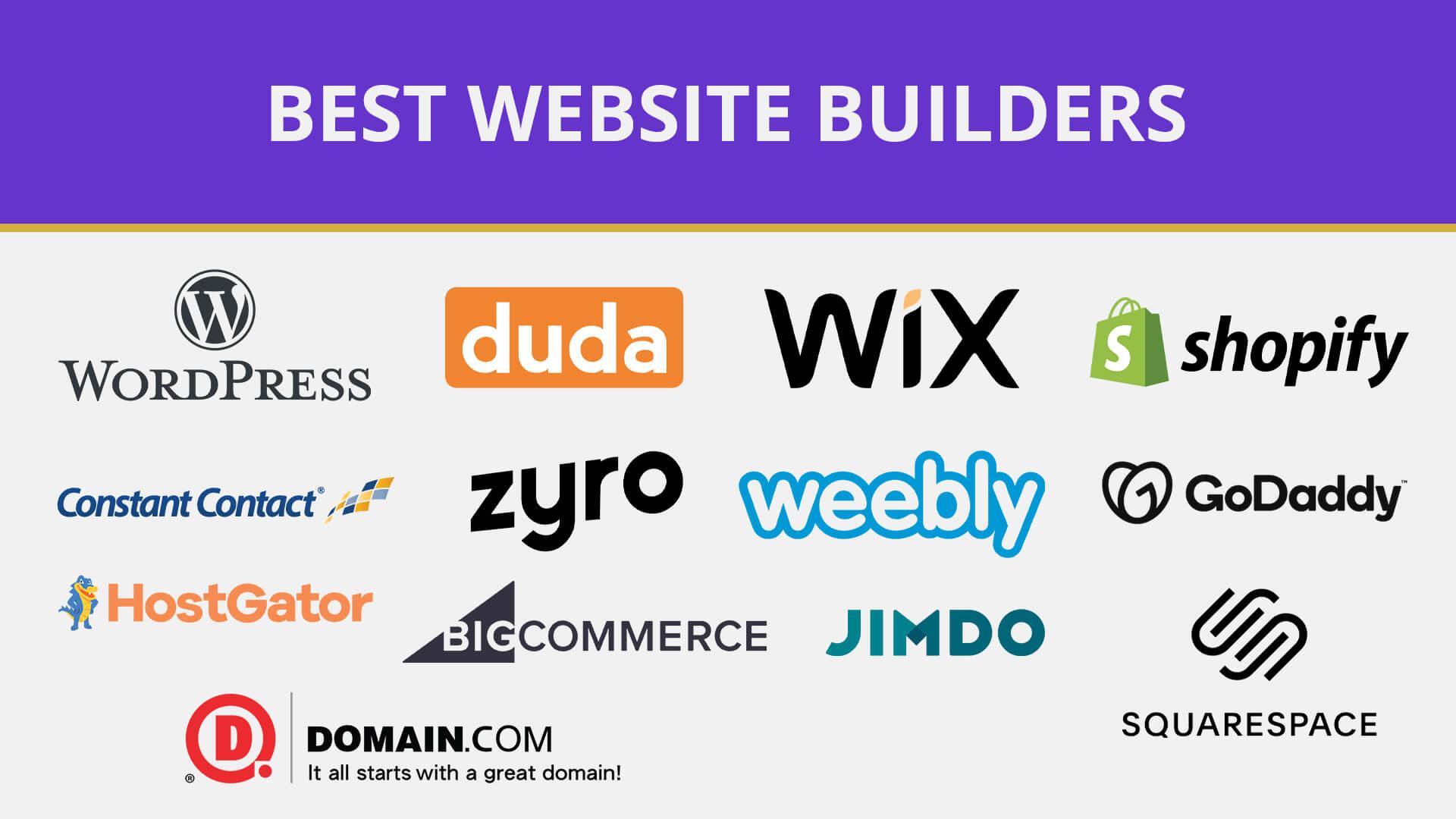
Robust Website Builders for Non-Techies
For those venturing into the world of website creation without a technical background, the variety of user-friendly website builders available today is a game-changer. Robust platforms offer intuitive drag-and-drop functionality, allowing anyone to create stunning websites without the need for coding skills.Here are a few standout options that cater specifically to non-techies:
- Wix: Known for its simplicity, Wix allows users to create visually appealing websites quickly. With hundreds of designer templates and a user-friendly interface, you can customize your site to fit your brand without any technical hassles.
- Squarespace: This platform is favored for its sleek templates and all-in-one approach. Squarespace handles web hosting, domain registration, and even e-commerce, making it an ideal choice for creative professionals and small businesses.
- Weebly: Perfect for beginners, Weebly combines ease of use with powerful features. Its drag-and-drop editor is straightforward, enabling users to build their site effortlessly while still offering advanced options for customization.
- Shopify: If your goal is to create an online store, Shopify is the go-to solution. It’s designed specifically for e-commerce and provides everything from product management to payment processing, all in a user-friendly package.
These platforms are not just about aesthetics; they come packed with features to help you establish a strong online presence. For example,many offer built-in SEO tools,which can definitely help your site rank higher on search engines,and responsiveness across all devices,ensuring your audience has a smooth experience whether they’re on a desktop or mobile.
| Feature | Wix | Squarespace | Weebly | Shopify |
|---|---|---|---|---|
| drag-and-Drop Editor | ✔️ | ✔️ | ✔️ | ✔️ |
| SEO Tools | ✔️ | ✔️ | ✔️ | ✔️ |
| Mobile-Friendly | ✔️ | ✔️ | ✔️ | ✔️ |
| eCommerce Support | Limited | Limited | ✔️ | ✔️ |
Choosing the right website builder is essential for anyone looking to establish their online footprint. With robust options designed specifically for non-tech users, you can focus more on your content and branding rather than getting lost in technical details. The future of website creation is bright, and it’s more accessible than ever!

SEO-Friendly Alternatives to Enhance Your Visibility
Looking to improve your website’s visibility without sticking to the conventional WordPress route? There are several SEO-friendly alternatives that can definitely help boost your online presence while offering unique features tailored to your needs.
Many platforms are designed with search engine optimization in mind, providing built-in tools and functionalities to enhance your site’s performance. Here are a few noteworthy options:
- Squarespace: Known for its visually appealing templates, Squarespace makes it easy to create stunning websites without compromising SEO. Its built-in analytics tools allow for effective tracking of site performance.
- Wix: With its user-friendly drag-and-drop interface, Wix includes essential SEO tools that help optimize your website for search engines. The platform offers a variety of applications to further improve functionality.
- Webflow: This platform is ideal for designers,offering extensive customization options while ensuring that your site’s code is clean and SEO-friendly.
Using the right content management system (CMS) can make a significant difference in your search engine ranking. Below is a comparison table highlighting some key features of these alternatives:
| Platform | SEO Features | Ease of Use | Customization |
|---|---|---|---|
| Squarespace | Built-in SEO tools, XML sitemaps | Very easy | Limited |
| Wix | SEO Wiz, customizable meta tags | User-friendly | High |
| Webflow | Clean code, SEO management tools | Moderate | Extremely high |
Each of these platforms offers unique benefits that cater to different needs and skill levels. Choosing the right one can substantially impact not just the look of your website, but its discoverability as well. Consider what matters most to your business when selecting an alternative to WordPress, and leverage these platforms to maximize your visibility online.
Cost-Effective Solutions for Budget-Conscious Users
For those who are budget-conscious yet eager to create a captivating online presence, exploring alternatives to WordPress can be a game-changer. Many platforms offer intuitive interfaces, robust features, and excellent support without the hefty price tag associated with traditional content management systems. Here are some standout options that deliver value without compromising functionality:
- Wix: This user-friendly website builder allows you to create stunning sites through a drag-and-drop interface. Wix offers free and affordable plans, making it easy to get started without breaking the bank.
- Squarespace: Known for its visually appealing templates,Squarespace is perfect for creatives and small businesses. While it carries a monthly fee,the all-in-one platform’s features can save you money on additional plugins and services.
- Weebly: With a straightforward setup and e-commerce capabilities,Weebly provides a cost-effective solution for small business owners. Its free plan is great for those just starting out, and the paid plans are competitively priced.
When comparing pricing structures, it’s essential to consider what you’re getting for your money. Here’s a quick look at how some of these platforms stack up against WordPress:
| Platform | Starting Price | Key features |
|---|---|---|
| Wix | Free – $27/month | Drag-and-drop editor, App Market, SEO tools |
| Squarespace | $16/month | Gorgeous templates, eCommerce, analytics |
| Weebly | Free – $25/month | Website builder, eCommerce options, responsive themes |
In addition to these platforms, consider exploring open-source options like Joomla or Drupal. While they may require more technical skill, they offer flexibility and control that can be beneficial for developers on a budget. Plus, the vast community support can provide you with valuable resources and plugins at little to no cost.
Ultimately, the right choice depends on your specific needs and goals. by researching and testing different platforms, you can find a solution that not only fits your budget but also empowers you to create a compelling online presence. Don’t let financial constraints limit your creativity; the perfect cost-effective solution is just a click away!

Best Platforms for Bloggers and Content creators
As the digital landscape continues to evolve, it’s essential for bloggers and content creators to explore versatile platforms that suit their unique needs. While WordPress has long been a popular choice, several alternatives offer unique features that can enhance your blogging experience. Here are some standout options:
- wix: Known for its drag-and-drop interface, Wix allows users to create stunning websites without any coding knowledge. With a variety of templates and design flexibility, you can easily showcase your content in a visually appealing way.
- Squarespace: This platform is perfect for creators who prioritize aesthetics. Squarespace offers beautifully designed templates and integrated e-commerce capabilities, making it an excellent choice for those looking to sell products or services alongside their content.
- Medium: If you’re focused on writing and reaching a built-in audience, Medium is an excellent option. Its minimalist design shifts the focus toward your writing, while its community features help you connect with readers and other writers.
- Blogger: A long-standing platform, blogger offers simplicity and ease of use for beginners. With Google integration,it’s straightforward to set up and manage,making it a reliable choice for hobbyists and casual bloggers.
- Ghost: For those serious about their content and community, Ghost is a robust platform designed for professional blogging and publishing. Its focus on speed and SEO makes it a powerful tool for creators looking to grow their audience.
Additionally, understanding the strengths of each platform can help you make an informed decision. Below is a comparison table highlighting key features:
| Platform | Best For | Key Feature |
|---|---|---|
| Wix | Design Flexibility | Drag-and-Drop Editor |
| Squarespace | Aesthetic Appeal | Responsive Templates |
| Medium | Writers | Community Engagement |
| Blogger | Beginners | Google Integration |
| Ghost | professional Blogging | SEO Optimization |
Choosing the right platform can significantly impact your blogging journey. By assessing your goals,audience,and content type,you can find an ideal match that not only supports your creativity but also enhances your visibility. Whether you prioritize design, community, or ease of use, there’s a perfect platform waiting for you.

Final Thoughts on Finding Your Perfect Website Solution
Choosing the right website solution is a pivotal decision that can shape your online presence and business success. With a myriad of options available, it’s essential to evaluate not just the features but also how well each platform aligns with your specific needs. Whether you’re seeking flexibility, ease of use, scalability, or a robust e-commerce solution, there’s a perfect match out there.
When considering alternatives to WordPress, keep in mind the following factors:
- User Experience: A user-friendly interface can save you time and help you focus on content rather than technicalities.
- Customization: Look for platforms that allow you to personalize your site without requiring extensive coding knowledge.
- Support and Community: A strong support system and an active user community can provide you with invaluable resources and assistance.
- Performance and Security: Opt for solutions that prioritize speed and security, ensuring your site runs smoothly and safely.
Another crucial aspect is scalability. As your business grows, your website should grow with it.Some platforms offer seamless upgrades and integrations that can support your evolving needs. it’s worth considering how easy it will be to add new features or expand your site in the future.
To help you evaluate the best options available, here’s a quick comparison table of some popular WordPress alternatives:
| Platform | Best For | Key features |
|---|---|---|
| Wix | Beginners | drag-and-drop editor, templates, SEO tools |
| Squarespace | Creatives | Stunning templates, built-in hosting, e-commerce |
| Shopify | E-commerce | Robust store management, payment processing, analytics |
| Joomla! | Developers | Advanced user management, multi-language support |
Ultimately, the right website solution hinges on your unique vision and requirements.Take the time to explore these alternatives, experiment with their features, and determine which platform resonates with your goals. The perfect website solution is out there, waiting to elevate your online presence and drive your success.
Frequently Asked Questions (FAQ)
Q&A: 17 Best WordPress Alternatives and Competitors for 2025
Q: Why should I consider alternatives to WordPress?
A: Great question! While WordPress is a popular choice for many, it’s not always the best fit for everyone. Alternatives can offer unique features, easier usability, better performance, or even specialized functionalities that cater to specific needs. Exploring alternatives could lead you to a platform that suits your project or business model perfectly.
Q: What should I look for in a WordPress alternative?
A: When evaluating alternatives, consider ease of use, customization options, scalability, support, and pricing.Depending on your needs, you might prioritize features like SEO tools, eCommerce capabilities, or mobile responsiveness. Think about what’s most crucial to you and your website goals!
Q: Are these alternatives suitable for beginners?
A: Absolutely! Many of the alternatives we discuss are designed with user-friendliness in mind, making them perfect for beginners. Platforms like Wix and Squarespace offer intuitive drag-and-drop interfaces that make building your website a breeze, even if you don’t have any coding experience.
Q: What if I want to build an online store?
A: No problem! If eCommerce is your focus,platforms like Shopify and BigCommerce are fantastic alternatives. They provide robust features tailored for online selling, including payment processing, inventory management, and customizable storefront designs. You’ll find everything you need to launch and manage a successful online store.
Q: Are there alternatives that excel in SEO?
A: Yes, definitely! Platforms like Webflow and Shopify come with built-in SEO tools that simplify the process of optimizing your content for search engines.They allow you to easily edit meta tags, alt text, and URLs, helping you improve your visibility without any technical hassle.
Q: how do these alternatives compare in terms of pricing?
A: Pricing varies widely among platforms, so it’s essential to consider your budget. Some alternatives offer free plans with essential features, while others have tiered pricing based on the functionalities you need. Such as, wix and Squarespace have affordable monthly subscriptions, making them accessible without breaking the bank.
Q: What about customization and flexibility?
A: If customization is a priority for you, platforms like Joomla or Drupal might be worth exploring. They offer extensive flexibility and a wide range of plugins and themes, allowing you to create a truly unique site.Keep in mind that they may require a bit more technical know-how compared to drag-and-drop builders.
Q: Are there any alternatives that cater specifically to bloggers?
A: Yes! If blogging is your primary focus,consider platforms like Ghost or Medium. Ghost is designed specifically for professional publishing, while Medium offers a built-in audience and a simple writing interface. Both can help you share your content with the world effectively.
Q: What about customer support with these alternatives?
A: Customer support can vary by platform. Some alternatives, like Shopify and Wix, offer 24/7 support through various channels, including chat, email, and phone. It’s always a good idea to check the support options available for each platform, especially if you anticipate needing help as you grow your site.
Q: is it difficult to migrate from WordPress to another platform?
A: Migration can be a straightforward process, but it depends on the platform you choose. Many alternatives offer helpful migration tools or services to ease the transition. Just be sure to research the specifics for the platform you’re interested in, and you’ll likely find resources to guide you through the process.
Q: what’s the bottom line? Should I switch from WordPress?
A: The decision boils down to your specific needs and preferences. While WordPress is a powerful tool, its alternatives can offer tailored solutions that may better suit your requirements. Weigh the pros and cons, explore your options, and don’t hesitate to switch if you find a platform that aligns more closely with your goals. After all, your website should work for you, not the other way around!
To Wrap It Up
as we wrap up our exploration of the 17 best WordPress alternatives and competitors for 2025, it’s clear that the landscape of website building is more exciting and diverse than ever.Whether you’re a seasoned developer or a small business owner looking to establish your online presence, these platforms offer unique features that cater to your specific needs.Choosing the right tool can be a game changer for your website’s success. While WordPress has long been a go-to option, stepping outside of that box could unlock new creative possibilities and streamline your workflow in ways you never imagined. From user-friendly drag-and-drop builders to robust e-commerce solutions, there’s a perfect fit out there for everyone.
So, why not take the plunge? Explore these alternatives, experiment with their features, and find the platform that resonates with your vision. Remember, the best choice is one that not only meets your current needs but also grows with you as your ambitions expand.
We hope this list has sparked some inspiration and helped you feel more confident in your journey to find the ideal website builder. Your dream website is just around the corner—so what are you waiting for? Dive in, and let your creativity shine!


